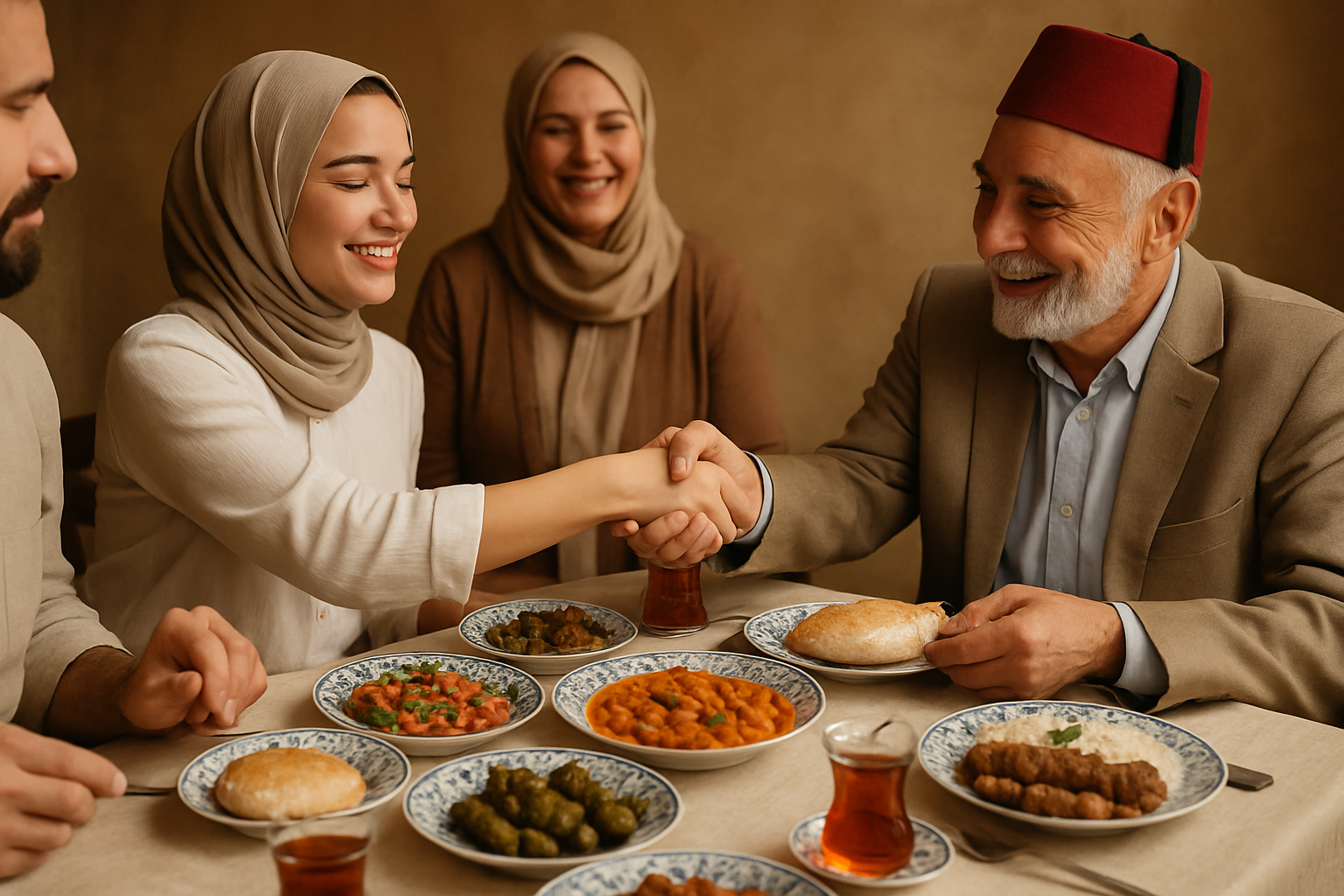Dining Etiquette: Manners and Customs in Turkey

Living as an expat in Turkey means more than adapting to a new climate or navigating unfamiliar administrative systems—it involves integrating into a culture where dining customs carry deep social significance. Whether you are attending a formal dinner, visiting a Turkish friend’s home, or dining out with colleagues, understanding Turkish dining etiquette can ease social interactions and help foster meaningful relationships. Here, you will find practical guidance on Turkish table manners that empower you to feel confident and connected at any meal.
Understanding Turkish Hospitality
Turkish culture values hospitality as a cornerstone of social life. When people invite you into their homes, they extend genuine warmth and generosity. For expats, accepting such invitations benefits you by:
- Building authentic friendships
- Gaining firsthand experience of Turkish life
- Expanding your language skills in a relaxed setting
You may notice that your host insists repeatedly that you eat more. Rather than simply a gesture, this shows a desire to ensure your comfort and satisfaction. Accept seconds graciously if possible, or politely say, “Teşekkür ederim, çok doydu,” which means, “Thank you, I’m very full,” if you truly cannot eat more.
Seating Arrangements and Table Settings
When you arrive for a meal, wait until you are shown where to sit. Turkish hosts often seat guests of honor at the table’s head or center, and family elders may take their seats first. Adhering to this custom shows both respect and cultural awareness.
On the table, you will likely find an array of shared dishes. Turks prefer communal dining rather than individual plates. Key items you might see include:
- Fresh breads or pide
- Multiple small dishes (meze) such as olives, cheeses, cold salads
- A main dish of grilled meat, fish, or vegetables
- Seasonal fruits and sweets
Wait until everyone is served before starting your meal. Turks may say “Afiyet olsun,” meaning, “May it be good for you.” Reply with the same phrase or a simple nod and smile.
Table Manners and Eating Habits
Turkish dining etiquette blends traditional rules with relaxed family warmth. While Turkish people value informality among friends, certain standards always apply:
- Keep your hands visible on the table—rest wrists but not elbows
- Eat at a moderate pace; fast eating may appear impatient
- Break bread with your hands, not a knife
- Use your right hand when passing food or accepting drinks
If eating a shared dish, use the serving spoon provided. Avoid reaching across others; instead, ask for items to be passed. These small gestures underscore your attentiveness and respect for group comfort.
Tea and Coffee Rituals
Tea (çay) and coffee (Türk kahvesi) hold a central place in Turkish daily life. Your host often offers tea before or after the meal. Accepting a cup signals camaraderie and appreciation for their hospitality.
Turkish coffee is usually served after a large meal. Sip it slowly, savoring both the flavor and the accompanying conversation. When finished, place your cup upside down onto the saucer. This traditional gesture indicates you are done and may inspire a playful coffee-ground fortune-telling session with your hosts.
- Never gulp tea or coffee—take small sips
- Stir your coffee gently, avoiding loud clinking
- If you do not want tea, a simple, “Teşekkür ederim” (Thank you) is sufficient
Gratitude and Farewell Customs
At the end of the meal, thanking your host is essential. The phrase, “Ellerinize sağlık,” meaning, “Health to your hands,” is a heartfelt way to praise their efforts. Offering to help tidy up may be declined, but the offer itself honors Turkish values of mutual support.
Before leaving, shake hands or give a warm smile, expressing your enjoyment. Turkish people appreciate genuine feedback and may invite you again—accepting future invitations further strengthens your social bonds.
- Compliment the cooks sincerely
- Say goodbyes to everyone individually
- Express your hope to meet again
Adapting to Turkish dining practices not only showcases your respect but also opens doors to rich, ongoing connections. Every meal is a chance to deepen understanding, share laughter, and build a sense of belonging. By embracing these customs, expats gain more than just a taste of local flavor—they find themselves genuinely welcomed at the Turkish table.
